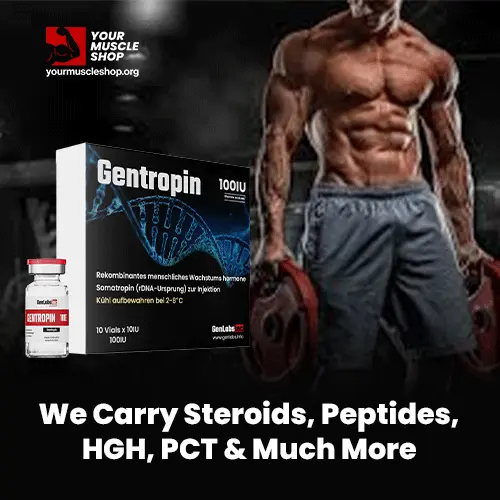protein
-

Best Female Bodybuilding Supplements
The best supplements for female bodybuilders are those that support their fitness goals while considering individual needs and health status. Here are some supplements commonly used by female bodybuilders: 1. **Protein Powder:** Whey, casein, or plant-based protein powders can help meet daily...- jimbosmith316
- Thread
- bodybuilders bodybuilding bone diet essential female fitness function goals growth health important individual iron mass muscle osteoporosis production protein recovery strength supplements support women workouts
- Replies: 0
- Forum: Female Fitness Forum
-

High Protein Holiday Cookies!
Absolutely! Here's a recipe for high-protein holiday cookies: ### High-Protein Holiday Cookies #### Ingredients: - 1 cup almond flour - 1/2 cup vanilla protein powder (whey or plant-based) - 1/4 cup coconut flour - 1/4 cup honey or maple syrup - 1/4 cup almond butter or peanut butter - 1/4...- jimbosmith316
- Thread
- 1/4 almond baking bowl butter chips chocolate coconut cool cup dark dough dry flour holiday ingredients minutes oven powder protein sheet syrup teaspoon vanilla
- Replies: 0
- Forum: Diet & Nutrition Forum
-

Meal Planning Basics
Meal planning for bodybuilding involves strategically structuring your meals to support muscle growth, performance, and recovery. Here's a breakdown: **1. Protein Intake:** - Aim for a consistent intake of high-quality protein sources like chicken, turkey, lean beef, fish, eggs, dairy...- jimbosmith316
- Thread
- bodybuilding brown bulking carbs cutting grain growth healthy hormone intake meal meals mixed muscle nuts pasta potatoes powder protein quinoa rice shake snack support sweet
- Replies: 2
- Forum: Diet & Nutrition Forum
-

Bulking for the Winter
Bulking during the winter can be a common strategy for bodybuilders aiming to gain muscle mass. Here are some tips that might help you: 1. **Caloric Surplus:** Consume more calories than your body burns to provide the energy needed for muscle growth. Aim for a surplus of around 250-500 extra...- jimbosmith316
- Thread
- bcaas bodybuilders bulking creatine energy ensure exercise exercises fats fitness focus foods growth health healthy hormone muscle muscles plan protein recovery routine time winter workouts
- Replies: 0
- Forum: Diet & Nutrition Forum
-

Holiday Meal Planning!
Planning a holiday meal as a bodybuilder can be both exciting and challenging! You'll want to strike a balance between enjoying festive dishes and maintaining your nutritional goals. Here's a rough guide: ### Protein: - Turkey or chicken breast: Lean, high in protein, and a traditional holiday...- jimbosmith316
- Thread
- bodybuilder content cooking desserts fats fruit great healthier healthy holiday meal option portions potatoes protein protein-rich quinoa roasted salad salmon sweet variety vegetables water
- Replies: 0
- Forum: Diet & Nutrition Forum
-

Tryptophan an Essential Amino
Tryptophan is an essential amino acid that plays a vital role in the body's protein synthesis. It's also a precursor to serotonin, a neurotransmitter that contributes to mood regulation and sleep. In the context of bodybuilding and fitness, tryptophan has some potential benefits: 1. **Mood...- jimbosmith316
- Thread
- amino balanced bodybuilding building contributes crucial diet essential fitness goals growth important includes medications mood muscle protein role serotonin sleep sources supplements support synthesis tryptophan
- Replies: 0
- Forum: Supplements Discussion
-

Carbs After your Workout
Carbohydrates play a crucial role in the post-workout period for bodybuilders. After a workout, especially one focused on resistance training, your muscles need to replenish their glycogen stores, and carbohydrates are key in this process. Here's how carbohydrates after a workout can benefit...- jimbosmith316
- Thread
- amount based body bodybuilders carbohydrates depending energy essential fitness glycogen goals growth helps insulin intensity muscle nutrients post-workout protein provide recovery repair response training workout
- Replies: 0
- Forum: Diet & Nutrition Forum
-

History of Protein in Bodybuilding
The use of protein in bodybuilding has a rich history intertwined with the sport's evolution. Here are key points in the history of protein and bodybuilding: **Early Days:** In the early 20th century, bodybuilding was gaining popularity, and athletes were experimenting with different diets to...- jimbosmith316
- Thread
- access athletes bodybuilders bodybuilding building casein diets fitness focusing gaining growth history intake muscle nutrition powders protein proteins repair research role sources supplements synthesis timing
- Replies: 0
- Forum: Diet & Nutrition Forum
-

Eating on the GO!
Keeping up with a bodybuilder's diet on the go can be challenging but definitely doable! Here are some tips to help: 1. **Meal Prep**: Prepare meals in advance that are easy to carry and consume on the go. Think grilled chicken, steamed vegetables, quinoa, brown rice, and sweet potatoes...- jimbosmith316
- Thread
- bodybuilders bodybuilding carry chicken due easy food grilled healthy hunger meals muscle plan portable powder protein resort salads snacks stores times vegetables water
- Replies: 0
- Forum: Diet & Nutrition Forum
-

Increasing the Protein Content in Baked Goods
Increasing the protein content in baked goods can be achieved by incorporating protein-rich ingredients into your recipes. Here are some suggestions for adding protein to baked goods: ### 1. **Protein Powders:** - **Whey Protein:** Whey protein powder is a popular choice due to its...- jimbosmith316
- Thread
- added baked brownie butter content cottage egg flour goods increase increasing ingredients moisture muffins pancakes powder protein protein-rich quinoa recipes savory substitute wheat whites
- Replies: 0
- Forum: Diet & Nutrition Forum
-

Amino Acid: Citrulline
A non-essential amino acid. Citrulline is involved in the urea cycle and is naturally found in certain foods and the body. It has gained popularity in the fitness and bodybuilding community due to its potential benefits. Here's a breakdown of how citrulline is often associated with bodybuilding...- jimbosmith316
- Thread
- acid amino arginine blood bodybuilding citrulline contribute cycle delivery exercise fatigue fitness flow growth levels muscle nitric nutrient oxide potentially promoting protein routine training workout
- Replies: 0
- Forum: Supplements Discussion
-

Peanut Butter Chocolate Chip Protein Donuts
Peanut Butter Chocolate Chip Protein Donuts There always needs to be a peanut butter flavored recipe! One of the staples in many bodybuilders? and athletes? diets, peanut butter is an excellent source of protein and healthy fats. In addition, this delicious snack is low in sugar and...- PEP PATRIOT52
- Thread
- add batter bodybuilders butter calorie-free chocolate donut donuts egg extract flour glaze greek ingredients large milk pan peanut powder powdered protein sweetener tbsp tsp vanilla
- Replies: 0
- Forum: Diet & Nutrition Forum
-

Stimulate Muscle Fiber!
Stimulating muscle fiber growth and development is a fundamental goal in bodybuilding. To effectively stimulate muscle fiber growth, it's essential to understand and implement key principles of resistance training, nutrition, and recovery. Here are some strategies for stimulating muscle fiber...- jimbosmith316
- Thread
- bcaas bodybuilding consuming creatine essential exercises fiber fitness goals groups growth intensity key muscle muscles nutrition proper protein repair resistance specific stimulate support surplus training
- Replies: 0
- Forum: Training and Weight Lifting Forum
-

IGF (Insulin-Like Growth Factor) for Tendon Health
Insulin-like growth factor (IGF) is a protein hormone that plays a role in promoting cell growth, including the growth of muscle cells and connective tissues like tendons. In the context of tendon health, IGF can have both positive and negative effects: 1. **Stimulating Tendon Growth:** IGF-1...- jimbosmith316
- Thread
- adequate bodybuilders bodybuilding collagen essential fitness growth health healthcare hormone igf igf-1 including levels maintaining muscle production proper protein repair support tendon tendons tissues training
- Replies: 1
- Forum: Steroids SARMS Peptides Forum
-

Lipids and Diet
Lipids, commonly referred to as fats, play a significant role in bodybuilding and overall fitness. While fats are often associated with weight gain, they are essential for various aspects of bodybuilding and maintaining overall health. Here's how lipids are relevant to bodybuilding: 1...- jimbosmith316
- Thread
- amount bodybuilders bodybuilding carbohydrates cell crucial diet energy essential fat fats fitness growth health healthy hormone important includes lipids muscle protein recommended testosterone training weightlifting
- Replies: 0
- Forum: Diet & Nutrition Forum
-

Intermittent fasting (IF)
Intermittent fasting (IF) is an eating pattern that has gained popularity in recent years, and it can be incorporated into a bodybuilding or fitness regimen. IF involves cycling between periods of fasting and eating, and it can potentially offer several benefits for bodybuilders when done...- jimbosmith316
- Thread
- bcaas bodybuilders bodybuilding calorie composition consult eating energy essential fasting fitness goals growth health hours intermittent levels meal method muscle protein recovery training window workout
- Replies: 0
- Forum: Diet & Nutrition Forum
-

Beef vs Chicken Protein
Beef and chicken are both excellent sources of protein, but they have some differences in terms of their nutritional content, taste, and cooking methods. Here's a comparison of beef and chicken protein: Protein Content: Beef: Beef is a good source of protein and is typically richer in...- jimbosmith316
- Thread
- beef boneless breast calories chicken choice compared content cooking cuts dietary fat good including lean lower methods nutrients preferences protein skinless source sources taste texture
- Replies: 0
- Forum: Diet & Nutrition Forum
-

Women vs Men Diet
Bodybuilding diets for men and women share many similarities, as both require an emphasis on specific nutritional principles to support muscle growth and recovery. However, there can be some differences in terms of calorie intake, macronutrient ratios, and specific nutrient needs based on...- jimbosmith316
- Thread
- based bcaas bodybuilding creatine cycle diet due goals growth higher hormonal hormone individual intake men muscle nutrient powder protein recovery require specific testosterone timing women
- Replies: 0
- Forum: Female Fitness Forum
-

Diet and Muscle Soreness
Diet can play a significant role in managing muscle soreness in the context of bodybuilding. Proper nutrition can help with muscle recovery, reduce inflammation, and support muscle growth. Here are some dietary considerations to help manage muscle soreness: Protein Intake: Protein is crucial...- jimbosmith316
- Thread
- acids balanced bcaas bodybuilding carbohydrates creatine diet essential fatty fitness foods growth inflammation intake muscle protein recovery reduce rest sleep soreness supplements support timing workouts
- Replies: 0
- Forum: Diet & Nutrition Forum
-

What Protein Does in the Body
Protein is an essential macronutrient that plays numerous critical roles in the body. It is made up of amino acids, which are often referred to as the "building blocks of life." Here are some of the key functions of protein in the body: 1. Tissue Building and Repair: Protein is essential for...- jimbosmith316
- Thread
- balance blood body building development energy essential fluid function functions growth hormone hormones insulin maintaining muscle proper protein proteins reactions sources support thyroid tissues
- Replies: 0
- Forum: Diet & Nutrition Forum








